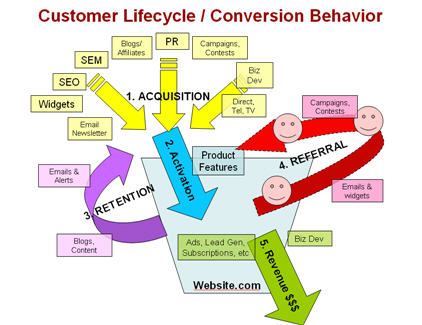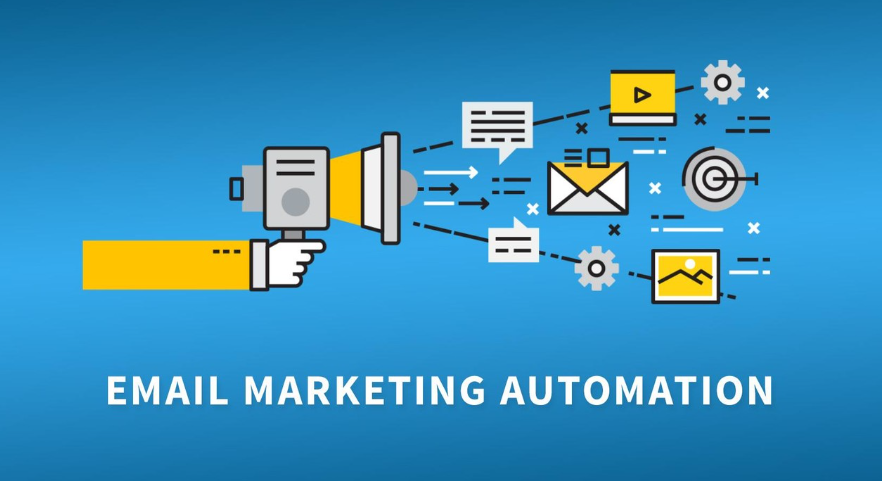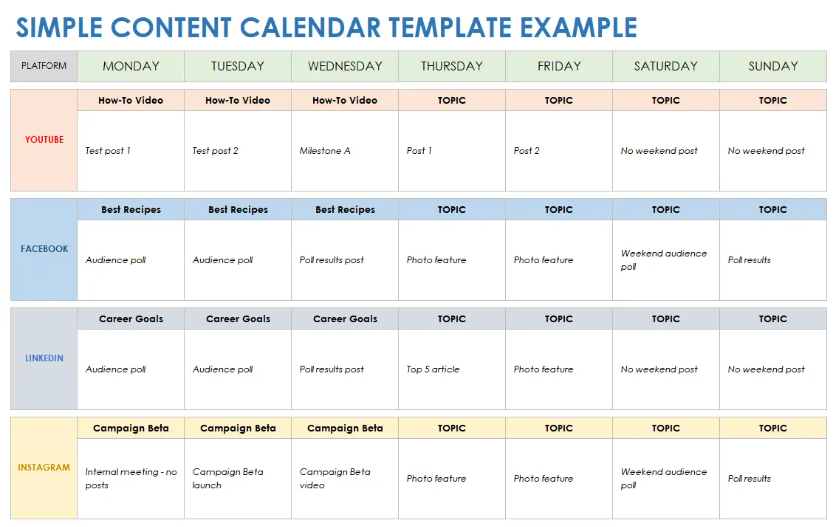Content marketing automation has become an indispensable tool for marketers and businesses struggling to keep up with the relentless pace of digital content demands. The challenge? Producing engaging, relevant content consistently can quickly overwhelm even the most dedicated teams, leading to missed opportunities and potential burnout.
This is where content marketing automation steps in. By automating the tedious and time-consuming tasks associated with content creation, distribution, and analysis, companies can be empowered to deliver more personalized, engaging content at scale, ensuring timely engagement with audiences and ultimately boosting marketing efficiency.
This article explores the untapped potential of content marketing automation, guiding marketers and businesses toward achieving unparalleled growth and engagement.
What Does Content Marketing Automation Mean?
Content marketing automation uses software and technologies to automate repetitive aspects of content marketing strategies. This includes scheduling and posting content across various channels, segmenting audiences for targeted campaigns, and analyzing engagement metrics to refine future content.
Marketers can focus on crafting more creative and impactful content by streamlining these processes.
In the current landscape, automation tools are becoming increasingly sophisticated, offering capabilities beyond simple task automation to include AI-driven content creation and personalization. This evolution signifies a shift towards more efficient, data-driven marketing approaches that can adapt to the dynamic needs of audiences.
Strategies
- Personalization at Scale: Utilizing customer data to tailor content to individual preferences, leading to higher engagement rates.
- Content Optimization: Analyzing performance data to refine content topics, formats, and distribution channels for better ROI.
- Lifecycle Marketing: Creating content for different stages of the customer journey, from awareness to decision-making, to nurture leads effectively.

Tools
- Content Management Systems (CMS): Platforms like WordPress and HubSpot that organize and automate content publication.
- Email Marketing Automation: Tools such as Mailchimp and Constant Contact for segmenting audiences and automating email campaigns.
- Social Media Schedulers: Applications like Buffer and Hootsuite to schedule and analyze social media posts.
- AI Content Creation: AI-driven tools like GPT-3 for generating content ideas and drafts, reducing manual writing effort.

Results
- Increased Engagement: Personalized content leads to higher open rates, click-through rates, and overall engagement.
- Improved Efficiency: Automation reduces the time spent on manual tasks, allowing teams to focus on strategy and creative content creation.
- Enhanced Analytics: Real-time data tracking and analysis offer insights into content performance, guiding more informed decisions for future strategies.
Integrating these strategies and tools into content marketing automation efforts can significantly improve efficiency, engagement, and overall marketing success.
Integrating Content Marketing Automation
Integrating content marketing automation into the broader marketing ecosystem is crucial for creating a seamless and efficient strategy that amplifies reach and engagement. This integration ensures that automation tools work in harmony with other marketing technologies, enabling a unified approach that drives consistent messaging and optimizes customer experience across all touchpoints.
- Customer Relationship Management (CRM) Systems: Syncing automation tools with CRM platforms like Salesforce or HubSpot enhances understanding of customer interactions and preferences, enabling more targeted content strategies.
- Data Analytics Platforms: Integration with Google Analytics or Adobe Analytics provides deeper insights into content performance, audience behavior, and conversion tracking, informing content decisions and optimizations.
- Social Media Management Tools: Connecting automation software with tools such as Sprout Social or Hootsuite allows for cohesive scheduling, posting, and analysis of social media content, ensuring consistent brand messaging across channels.
- Email Marketing Platforms: Automating email content creation and distribution through platforms like Mailchimp or Marketo, aligned with broader content strategies, increases efficiency and personalization of email marketing campaigns.
Best Practices for a Unified Marketing Strategy
- Centralized Content Calendar: Use a unified content calendar to plan and visualize all content activities across different platforms, ensuring consistency and timely execution of marketing campaigns.
- Consistent Brand Messaging: Maintain a consistent brand voice and messaging across all automated content, reinforcing brand identity and enhancing customer recognition.
- Cross-Channel Coordination: Coordinate content distribution across different channels, ensuring that each piece of content is optimized for the platform it’s being shared on while contributing to a cohesive narrative.
- Continuous Optimization: Leverage data and analytics from integrated platforms to continually refine and optimize content strategies based on performance metrics and audience feedback.
- Collaboration and Communication: Foster a collaborative environment among different marketing teams (content, social media, email) to ensure alignment and leverage synergies in content creation and distribution.

By thoughtfully integrating content marketing automation with other marketing technologies and following these best practices, businesses can create a more cohesive, efficient, and effective marketing strategy that resonates with their audience and drives results.
Industry-specific Applications of Content Marketing Automation Strategies
Content marketing automation offers versatile solutions tailored to different sectors’ unique needs and challenges. By customizing automation strategies, businesses can leverage specific opportunities to engage their target audience more effectively and drive sector-specific outcomes.
Tailoring for Different Sectors
- E-commerce: Use automation to personalize product recommendations and promotions based on user behavior and purchase history, enhancing the shopping experience and increasing sales.
- Healthcare: Automate patient education through personalized content delivery based on patient profiles and health interests, improving patient engagement and care outcomes.
- Finance: Implement automation to send timely, personalized financial advice and market updates to clients, building trust and loyalty in a highly regulated industry.
- Technology: Leverage automation to distribute the latest tech trends, product updates, and case studies to a tech-savvy audience, positioning the brand as a thought leader.
Addressing Challenges and Opportunities
Each sector faces unique challenges, such as regulatory constraints in healthcare and finance or the fast pace of innovation in technology and e-commerce. Content marketing automation allows for addressing these challenges by delivering personalized, compliant, and timely content, thus capitalizing on the opportunities to engage and convert audiences in each specific industry.
Top Tools for Content Marketing Automation and How to Select the Right One
Choosing the right content marketing automation tool is crucial for maximizing efficiency and achieving marketing objectives. Below are a few top tools in the market, their features, and what you should consider while trying to find the best tool for your needs.
(Please note that pricing can vary based on specific plans, features, and usage levels, so it’s essential to visit the respective websites for the most current details.)
|
Tool |
Features |
Pricing |
Pros |
Cons |
| HubSpot Marketing Hub | CRM, email, social media, SEO, content management | Free tier; Professional starts at $800/month; Enterprise starts at $3,200/month | Comprehensive suite, user-friendly, great integration | Can be expensive, especially at higher tiers |
| Marketo | Email marketing, lead management, analytics, CRM integration | Pricing not listed; custom quote required | Robust automation features, scalable | Pricing transparency, may be costly for small businesses |
| Pardot | Email automation, lead nurturing, CRM integration | Pricing starts from $1,250/month for Growth plan | Deep Salesforce integration, advanced targeting features | High cost, complexity may overwhelm new users |
| Mailchimp | Email marketing, landing pages, CRM, analytics | Free plan; Essentials from $13/month; Premium from $350/month | User-friendly, flexible pricing plans, comprehensive features at higher tiers | Advanced features locked behind higher-priced plans |
| ActiveCampaign | Email marketing, CRM, messaging, automation | Lite plan starts at $9/month; Plus plan at $49/month | Powerful automation, CRM integration, good customer support | Interface complexity for new users, price increases with contacts |
| ContentStudio | Content discovery, planning, automation, analytics | Starts at $25/month for the Pro plan | Comprehensive content marketing solution, supports multiple social platforms | May be overkill for small teams, learning curve |
| Omnisend | Email marketing, SMS, automation, segmentation | Free plan available; paid plans start from $16/month | E-commerce focused, integrates SMS and email well | Limited use outside e-commerce |
| CoSchedule | Marketing calendar, content organizer, social scheduling | Not listed; requires contact for pricing | Consolidates content and social media planning | Pricing not transparent, may not fit all budget sizes |
| Sprout Social | Social media management, analytics, engagement | Plans start at $99/user/month | Comprehensive social media tool, detailed analytics | Costly for small teams, per user pricing |
| Ahrefs | SEO tools, content research, keyword tracking, backlink analysis | Plans start from $99/month | Powerful SEO and content analysis tools | Pricey for freelancers or small websites, steep learning curve |
Decision-making Framework for Businesses
When selecting a content marketing automation tool, businesses should consider:
- Business Needs: Match tool features with your specific marketing goals and needs.
- Budget: Ensure the tool’s pricing aligns with your budget while offering the necessary functionality.
- Integration: Check compatibility with existing marketing tools and systems.
- Scalability: Choose a tool that can grow with your business, accommodating increased demands and complexity.
- User Experience: Consider the learning curve and support offered to ensure a smooth adoption process.
By evaluating these criteria, businesses can select a content marketing automation tool that best fits their strategy and goals, driving efficiency and success in their marketing efforts.
Future-Proof Your Marketing with Flying V Group
Navigating the vast landscape of content marketing automation requires careful consideration of your business’s unique needs, goals, and budget. Selecting the right tools and strategies can significantly enhance your marketing efficiency, personalization, and overall effectiveness.
If you are a business struggling to make sense of content marketing automation and seek expert guidance to leverage its full potential, we invite you to partner with us at Flying V Group. Flying V Group will stand as your dedicated partner. With our expertise, you can seamlessly integrate automation into your marketing strategy, ensuring your content reaches and resonates with your target audience, driving engagement and growth.
Let Flying V Group help you harness the power of automation and propel your business to new heights.
FAQs
What is content marketing automation?
Content marketing automation involves using software to automate repetitive tasks in content marketing strategies, such as scheduling posts, segmenting audiences, and analyzing engagement metrics to refine future content strategies.
How do you automate content production?
Content production can be automated by using AI-driven tools for generating content ideas and drafts, scheduling tools for posting across platforms, and content management systems (CMS) to organize and automate the publication of content.
How is automation used in marketing?
Automation in marketing is used to streamline various tasks, including email campaigns, social media posting, customer segmentation, and personalized content delivery, aiming to increase efficiency and engagement while reducing manual effort.
What is content automation in SEO?
Content automation in SEO refers to using tools to automate keyword research, content optimization, backlink monitoring, and reporting. This helps improve search engine rankings efficiently without manual analysis and adjustments.
What is the content automation process?
The content automation process involves planning, creating, scheduling, distributing, and analyzing content using automated tools and software. This process aims to enhance marketing efficiency, personalize content, and better engage with the target audience.






0 Comments